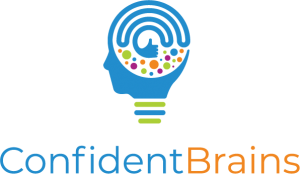By all accounts, Alessandro Marchi has a great life. The 50 year-old Italian runs his own successful music production company, has a lovely family, and has lived as an expat, most recently in Singapore and Thailand, for over 20 years. But Alessandro knew things could be better. “For me, the worst thing you could ask me to do is read out loud. I had an undiagnosed dyslexia problem. I knew that my whole life, but I never addressed it.” He also struggled with writing. As a child in Italy, he intuitively wrote with his left hand, but “when I was about to start primary school, they made me write with my right hand. When I got to grade 6 they made me go back to my left hand. My writing was horrible, of course. It was something I learned to live with.” Like many people who grew up when learning differences weren’t on the radar, Alessandro learned to cope, and cope well.
When he learned about the Arrowsmith program available at United World College Thailand, the school his children attend, he was wary at first. Looking into it, he began to wonder, “If it helps people with learning challenges, what will it do to people who are in the so-called ‘normal range’? I saw many children benefiting from the program, and I thought, ‘What if I had a go? Would it help me?’ ”

When Confident Brains opened an adult program, Alessandro thought, “Why not invest six months in myself and try this thing?” He ended up enrolling in a full year for three sessions a day. The assessment results surprised but galvanized him. “It’s shocking at first but then you think, certainly, there’s a chance to improve these things. At that moment, I didn’t know what to expect but I trusted that it would have a positive impact.”
A few months in, he felt that impact. Although he was able to avoid reading out loud in public, he couldn’t say no when his kids asked for a bedtime story. Stumbling through words and misreading, he described it as, “a painful experience for me and for them.” One night, his kids asked him to read for them. “Pages into the story, I realized I WAS READING ALOUD with no difficulties! I was reading a whole story aloud… and well!” he recalls, laughing. “I was in disbelief. I didn’t say anything. Maybe this is a fluke.” It wasn’t. It took Alessandro a few days of reading more easily to process the shift. “It was completely night and day. I realized how big this was for me, how big of a burden had lifted. I was so impressed that it was happening. That was definitely when I realized, ok, this [Arrowsmith] is really helping me.”
With this boost, he worked even harder. “I had a very gung-ho approach. It was like going to the gym for me. I enjoyed it very much. I was competing with myself, my own limitations. Trying to do as much as possible every day. It’s a time and financial commitment so I wanted to see the most coming from it.”
As a Formula One fan, he really enjoyed the Symbol Relations exercise. “You feel like you’re a fighter pilot or formula one driver. You need to make a perfect lap in order to master. You make one single mistake, and you spoil the whole lap.” Alessandro began to notice more changes. “It’s as if you’ve received a boost. If you’re running, you can run faster. It’s easier. The organization of my thought and speech is much more fluid. It’s easier to find the words. I am more strategic. I think before I act. My learning is faster. I’m much more precise in my music playing. There is more clarity.” His wife, Sonia, noticed subtle differences too. “He’s less frustrated overall. A bit nicer to be around. Less frustrated about little things.”
He occasionally thinks about how life would have been different if he’d had access to something like Arrowsmith as a child. “Oh my goodness. It’s the big what if. I would be a completely different person.” Still, Alessandro is happy he found it later in life. “I’m grateful for doing something for myself, for giving myself this opportunity. That’s the thing about Arrowsmith. Once you discover there is incredible potential, the question you ask immediately is, ‘why are people not going crazy for this thing?’ It really can straighten up your thought process. It’s for everyone. It’s a very effective brain gym.”
Asked if he would try reading out loud in public now, Alessandro recalls a memory of going to a seminar and being asked to read in front of the audience. “I knew it was over my limits. I said, ‘Sorry, I’m dyslexic, I would never do that.’” Today he feels differently. “I would give it a shot. I would be nervous speaking in front of an audience. It would scare the s— out of me but I would give it a shot.”
